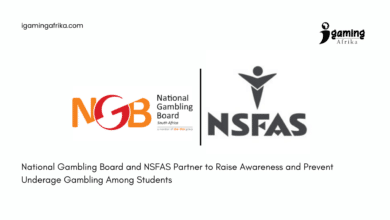Obinna Akpuchukwu on Overtaxation and Regulations in Nigeria’s iGaming Industry

The recent Enugu Gaming Conference 2025 organized by the Enugu State Gaming Commission, brought together leading voices in Nigeria’s gaming ecosystem, including legal expert Obinna Akpuchukwu, Partner at Allen & Marylebone, who shared valuable insights on taxation, regulation, and the path toward unification in the industry.
One of the major highlights of the discussions during the conference was the burden of excessive taxation and regulatory levies imposed on gaming operators. Obinna explained that operators are not only fulfilling their obligations by paying standard taxes such as company income tax, withholding tax, and environmental levies, but they are also being forced to shoulder additional charges and arbitrary fines that have little or no connection to their operations. According to him, these extra burdens are crippling many companies in the sector.
“Operators are not just talking about the regular taxes,” he said. “We’re talking about unnecessary levies, fees that have no bearing with the operations as gaming operators. Betting companies are battling with the regular taxes… but in addition to that, they are also faced with all these fines from left, right and center and it is killing the industry.”
To illustrate his point, he cited a recent case in Imo State, where betting companies were fined ₦100 million each by an environmental agency for alleged infractions more appropriate to manufacturing companies. “They alleged environmental infractions like turning sewage into the river, gaseous emissions, things that have to do with manufacturing companies,” he noted. “But betting companies don’t even operate in that space. These kinds of fines show that agencies simply see betting companies as cash cows.”
This trend, he argued, reveals a misconception about the gaming industry’s profitability. While agencies assume that betting companies are awash with cash and can absorb any financial demand, the reality is that such excessive levies undermine profitability, discourage new entrants, and weaken investor confidence.
The theme of the conference, “Unification and Diversification,” also resonated strongly with ongoing debates around regulation. Obinna emphasized the importance of a unified gaming license to streamline compliance and reduce the arbitrary levies that currently plague operators.
Read Also: Exclusive: The next frontier for iGaming: Shaping the Future of Gaming in Africa
He pointed to recent Supreme Court developments that have pushed state regulators to the negotiation table. However, he acknowledged that the process remains incomplete: “Well, it’s been able to shake the ecosystem in the sense that it has gotten the state regulators to come to a table to begin the negotiation. I know it is still a work in progress. The unified gaming license has not taken its full course. It’s still being fine-tuned. The modalities are still being fine-tuned.”
For legal advisors and prospective investors, the uncertainty creates significant challenges. “Clients want to know, they want certainty. We as the standard solicitors, we are finding it difficult to advise new coming clients. Clients who want to go into the industry, we find it difficult because we do not even know how to advise them as to their licensing. Do we tell them to wait for the unified gaming license so that they will just have one license or do you tell them to start going for state to state to get the licenses?”
Beyond easing compliance for operators, Obinna Akpuchukwu noted that the unified licensing effort could also shape national legislation. The National Assembly is currently considering a bill for centralized federal licensing, but he warned that such a law would likely face constitutional hurdles. “Perhaps if the unified gaming licensing regime by the state gaming regulators has come into play, perhaps the effective implementation might work on the mind of the National Assembly to mellow them because I think that the bill they want to pass into law will be unconstitutional when passed into law.”























